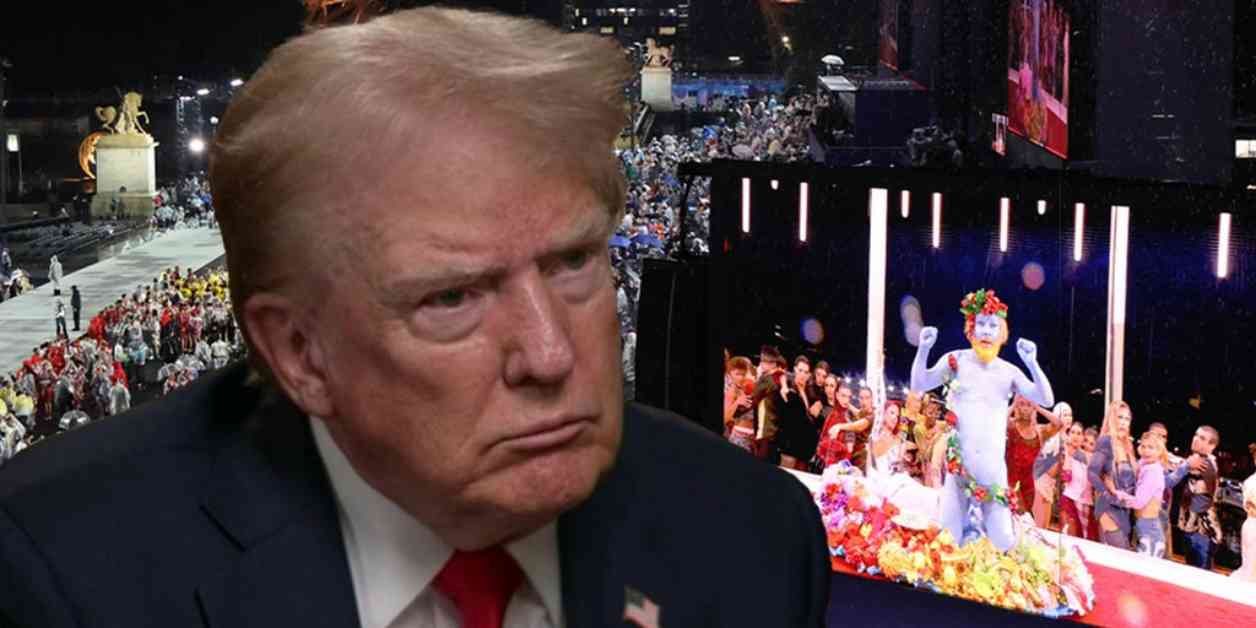Former President Trump criticized the opening ceremony of the 2024 Paris Olympic Games, calling it a disgrace. The ceremony featured a scene that some say parodied Leonardo da Vinci’s painting “The Last Supper.” The depiction showed dancers in drag surrounding a table resembling Jesus and his disciples. This sparked outrage among critics, including the French Bishops’ Conference and House Speaker Mike Johnson, who found the scene disrespectful to Christianity.
Despite the backlash, the director of the opening ceremony, Thomas Jolly, defended the controversial scene. He explained that the inspiration behind the portrayal was not “The Last Supper” but rather a celebration involving Dionysus, the Greek god of wine. Jolly emphasized that his intention was not to mock or denigrate anyone but to create a ceremony that promotes reconciliation and values of liberty, equality, and fraternity.
Trump expressed his disapproval of the scene and stated that if he had a say in the 2028 Los Angeles Olympic Games, there would not be a similar portrayal of “The Last Supper.” He emphasized that while he is open-minded, he found the scene to be terrible and a disgrace.
The criticism of the opening ceremony highlights the sensitive nature of religious imagery and the importance of respecting diverse beliefs and traditions. It also raises questions about the boundaries of artistic expression and the need to balance creativity with sensitivity towards religious sentiments.
As discussions around the controversy continue, it is essential to consider the impact of artistic choices on different communities and to strive for inclusivity and respect in cultural representations. The incident serves as a reminder of the power of art to provoke thought, spark dialogue, and evoke emotional responses. It also underscores the significance of engaging in constructive conversations about the intersection of art, religion, and culture in a globalized world.





















